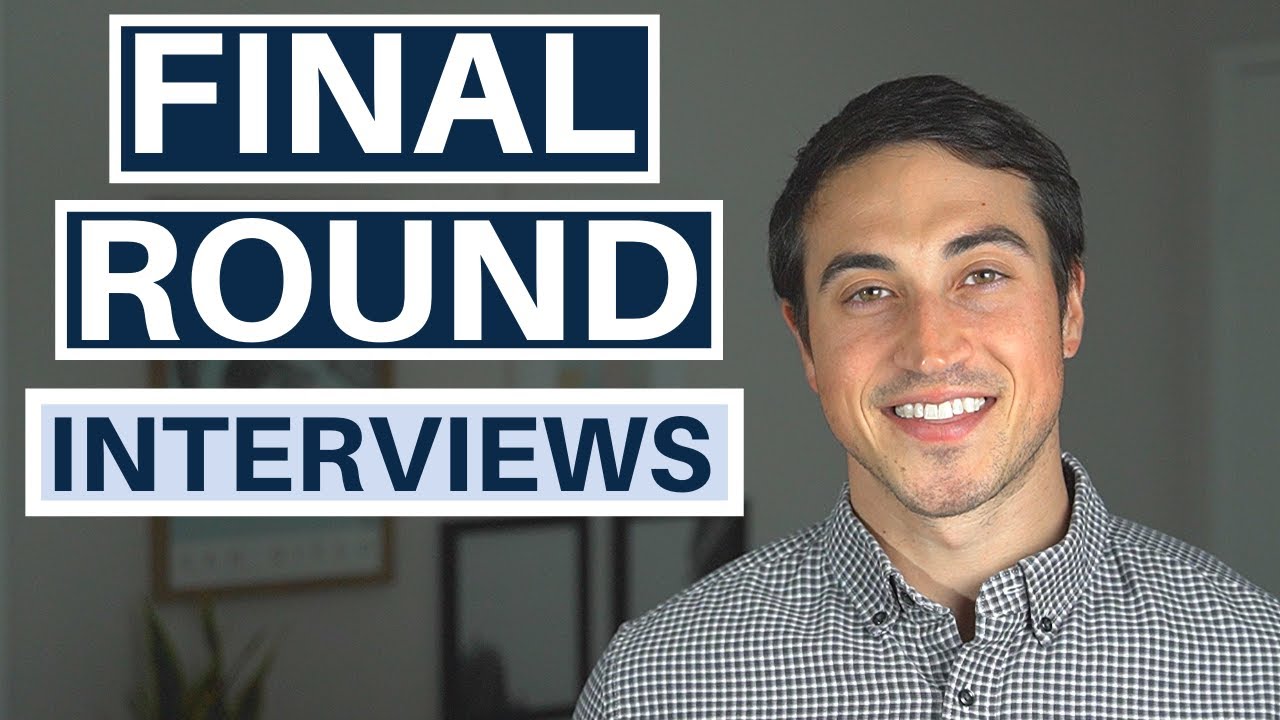
How To Prep For a Final Round Real Estate Interview

If you’re new to the real estate industry and haven’t gone through the interview process before, you might be surprised how long this process can end up being when you actually get into it.
The combination of an application, phone screening, phone interview with a hiring manager, in-person interview, Excel-based technical assessment, and final round interview with the firm’s executive leadership team isn’t uncommon at all in the CRE hiring process, and these steps together can often end up spanning several months from the time you submit your application to the time you receive an offer.
And although this entire process isn’t easy, one of the biggest wildcards that can be thrown your way is the last step of this, the final round interview with the firm’s senior leadership team.
Because in this round, the questions you’ll need to tackle might look a little bit different than the first few interviews you had with other members of the firm.
So in this article, to help you get across the finish line successfully, we’ll do zoom in on the last step of the interview process, and three of the biggest things you can do to ace your final round at a real estate investment, brokerage, or lending firm.
If video is more your thing, you can watch the video version of this article here.
Get Clear On Your Long-Term Goals
To prepare for a final round interview, the first thing I’d recommend is getting very, very clear on your answer to the question, “Where do you see yourself five years from now?”
When you’re interviewing with senior executives who are primarily responsible for the direction of the company and the long-term strategic vision of the firm, their questions for you at this stage are going to be used to figure out how well you “fit” within the firm and your long-term potential as a leader within the organization.
Hiring is expensive for companies, and as time-consuming as the interview process is for you as a job candidate, this process is even more time consuming and resource-intensive for the companies actually doing the hiring.
Because of that, from the perspective of a senior executive trying to maximize the firm’s bottom line, the most beneficial scenario for the company’s long-term growth when hiring new talent is to bring on committed, driven, passionate people. The kind of people that have the potential to grow internally within the company and can take on leadership positions in the future.

The more often employees are promoted within the company itself, the less time and money the company has to spend on hiring new employees, and the more intellectual capital and relationship capital the company keeps long-term.
How To Answer The Question, “Where Do You See Yourself 5 Years From Now?”
For you as a job candidate, this means that your job in this final round interview is to convey to the company’s leadership team that you are that person that can be that long-term solution and can grow within the company, and that you have everything it takes to become a leader in the firm as you continue to progress throughout your career.
To do that, this is your opportunity to talk through things like why you believe in what the company is doing, what you think about their investment strategy and the product types and/or markets they have a presence in, and how your personal goals and interests align with what the firm is doing long-term.
The more you can show your commitment to the specific part of the industry the company exists within, and your desire to not only help your own career grow, but to help the company grow and accelerate the initiatives they’re already taking on, the more competitive you’ll be at this stage of the process.
Research The Company In-Depth Beforehand
Aside from getting clear on your long-term vision for your career, the next key thing on this list I’d recommend doing to prepare for a final round interview at a real estate firm is to research the company as much as you can, and come prepared to talk through that research, if necessary.
At this stage of the interview process, one commonly asked question you’ll see is some variation of, “Why our company?”
Essentially, what you’re being asked here is, “What do you know about our firm, how do you fit in with our culture here, and what is unique about you that can help us achieve what we’re trying to accomplish?”
Today, almost all real estate firms have some sort of digital presence, so a layup here is digging into the company website, but also searching for external articles and press releases about new property acquisitions, new funds being raised, or key hires that mark a commitment to expansion in a certain region or property type.
Companies know that if you’re interviewing for a job at their firm, that’s probably not the only job application you’ve fired off in the last few months. And with that, they want to make sure that you’re serious about their company, specifically, rather than just looking for any new job that will get you out of your current role.
How To Answer The Question, “Why Our Company?”
To demonstrate your genuine interest and desire to work for this company, specifically, take the time before talking to the executive team to dig in as much as you can into the company’s website, news articles referencing the firm, any LinkedIn posts from senior leadership, or even a company’s stock price over time if you’re interviewing at a public investment firm or REIT.
This gives you the opportunity to find patterns in the company’s actions and think through how your own experiences, existing skill set, and long-term goals and interests align with the role you’re applying for and the long-term trajectory of the company.

Remember that during the interview process (and this is especially true in the eyes of senior executives), you’re being evaluated based on what you can do for the firm, and how you can advance their objectives and where they’re looking to go (both in the short and long-term).
The more you know what that direction is, the more clearly you can speak to how you can add value and help accelerate the process of taking the company closer to where they want to be.
Be Prepared For Critical Thinking Questions
Aside from digging into the company itself and getting clear on your own long-term goals, the final thing I’d recommend to prepare for a final round real estate interview is to prepare to bring your critical thinking skills to the table.
At this stage of the game, you’ve probably already gone through an Excel modeling assessment, your hiring manager has likely signed off on you as a candidate, and there’s some pretty solid confidence across the board that your technical skill set is where it needs to be to perform the job at a high level.
But from here, on that same note as looking for long-term talent that can grow within the firm, senior company executives are going to want to know that you can do more than just memorize formulas and input information into a spreadsheet, and they’ll want to know how you think through investment decisions and cause and effect scenarios on your own.
Critical Thinking Questions To Prepare For
To test this, you might be asked questions around your own personal real estate investment thesis, the macro or micro economic factors that drive your opinion on a particular product type or geographic market, or what you think the result might be of a changing political climate or new economic policies on the real estate industry as a whole.
With technology automating more repetitive tasks than ever, companies are really looking for analyst and associate candidates who can think critically by taking significant amounts of data provided in research databases, models, and spreadsheets, and synthesize that data in a clear, concise way.
This means someone who can paint a picture of what that all means, and can provide feedback to senior leadership on how that might play into how the company makes investment decisions in the future.
Questions like, “What do you think will happen to real estate pricing if interest rates rise?”, or “What does a DCF analysis tell you about an investment?”, or “What are some things that might cause cap rates to rise in the future?” are all fair game at this point of the process, since these allow an employer to see how you view the industry as a whole and how you think critically about problems without a clear-cut solution.

In most cases, there are no right answers to these questions. However, being able to articulate a well-thought-out thesis and using supporting data to back that up will go a very long way in showing senior executives the kind of though process you could bring to the firm, and the value you could bring to the team’s decision-making process going forward.
Need More Help With The Process?
If you’re heading into a final round interview in the near future, these are three things that can put you head and shoulders above your competition when talking to a senior leadership team that’s evaluating you for a new role.
But if you’re looking for more personalized help and guidance during the job search process, along with instant access to over a dozen courses on real estate financial modeling, Excel interview exam prep, and courses to help you tighten up your resume and LinkedIn profile to land more interviews in the first place, make sure to check out Break Into CRE Academy, or feel free to check out the free Real Estate Financial Modeling Crash Course below.
Good luck in the final round!


